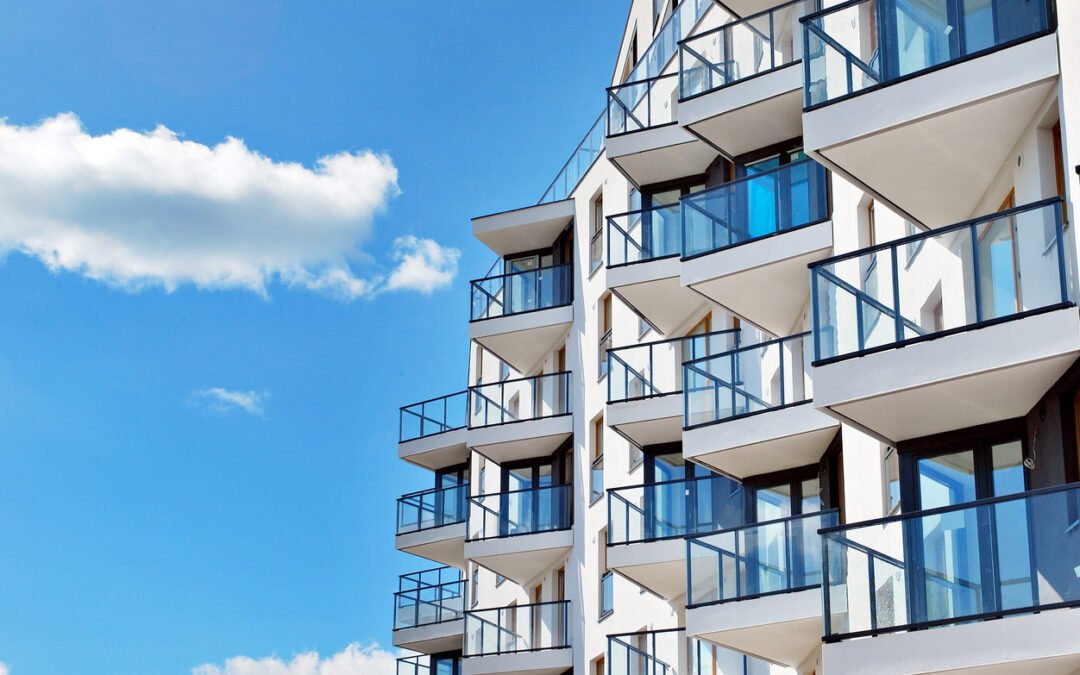With today’s economy, many consumers are looking to downsize to a more convenient way of living. Whether it is a brand-new loft or spacious older suite, you’ll want to protect your investment. In this article, we discuss what condo insurance is, why you should have it, what it typically covers, and endorsements that offer extra protection.
What is Condo Insurance?
Demand for condo insurance is increasing. Canadians appreciate the relative affordability and lower maintenance requirements of a condominium compared to a detached home. Condo insurance is a personal policy that protects your individual unit and rounds out the coverage you automatically get from your condo corporation. Here’s how condo insurance works:
- The condo corporation’s insurance will protect common spaces and amenities, like gyms, pools, lobbies, hallways and elevators
- Your personal policy will cover what’s in your unit, including personal property, the cost of repairs, the expenses involved in living elsewhere during those repairs, and liability should someone get injured in your unit
What does Condo Insurance cover?
Condo insurance is similar to other homeowner policies. It provides you with protection in exchange for the monthly premium agreed upon with your insurer. The main difference is that as an owner of a unit within a building, condo insurance is focused on your personal items and the interior of your unit.
A typical condo insurance policy covers everything not covered by the condo association’s master policy. This includes:
- Coverage for your contents: Protecting your personal property inside your unit. It protects everything from your furniture and clothing to your TV and hardwood floors, up to a specified amount. Policies generally start at $20,000 worth of coverage. The value of your stuff can add up to a lot more than most people realize. Keep a home inventory to have an estimated value of your items.
- Upgrades and improvements to fixtures: You will update fixtures, such as the appliances, wiring, plumbing, and carpets. The value of these upgrades are assessed and incorporated into your coverage.
- Condo corporation assessments: You will get reimbursed for assessments on your unit or common areas by your condo board.
- Liability: Personal and property liability. If you a neighbouring unit or if you cause an injury to someone in your unit, you will be covered. Personal liability coverage will protect you against claims up to a specified amount set in your policy.
- Additional living expenses: This coverage pays for you to temporarily relocate following an insured loss. Additional living expenses pays for your hotel, or Airbnb, as well as additional food you wouldn’t otherwise be buying.
DYK: Your policy covers medical costs of someone injured on your property, and if they decide to sue for damages, it helps pay your legal bills. The average ranges from $500,000 to $3 million.
What is Optional Condo Insurance?
Depending on your circumstance, you may want or need to add-on to your current policy to better customize protection to your specific risk exposure:
- Overland water: Water from rivers or lakes that, after a heavy rainfall, accumulates and floods out onto land.
- Sewer backup: When sewage overflows due to heavy rainfall and backs up into your basement. Consider adding this endorsement if you live in a townhouse.
- Identity theft: Coverage in the event that a third party steals personal information (e.g. driver’s licence, passport, credit cards, SIN) and uses it to commit a crime.
- Additional contents: If you have any valuables, be it a collection or a single expensive item, understand there are limits. For extra protection, you can add an insurance floater or extra rider for extensive coverage.
- Home sharing
- Rental income protection
- Home-based business insurance
How much is condo insurance?
Expect to pay anywhere from $250 to over $1,000 per year. Many factors affect the price you pay for condo insurance. An insurance provider will need to know your unit’s unique details, as well as the building information. The more details provided, the more accurate they can be in assessing risk, probabilities and cost.
When determining your premiums, condo insurance providers will look at the following factors:
- Property type: Whether a stacked townhouse, gated community, or a 500-square foot condo, each one will be evaluated differently because they each come with different risks.
- Credit score: Insurers use your credit score to help determine your premiums. This can translate to discounts on your premiums, up to 25%!
- Replacement costs: In condos, there is a difference between actual cash value (ACV) and replacement costs when it comes to your contents. ACV accounts for depreciation whereas replacement costs will replace your old TV with a brand new one of approximate quality.
- Location: Factors, such as population density, crime levels, and proximity to airports or large bodies of water, can all affect your premiums.
- Internal construction: When and how your condo was constructed plays a part in the premium determination. Insurers will look at the electrical, plumbing and heating systems in place to help them assess your premium.
Other factors to be aware of are:
- Renovations & betterments: If you are adding high-end features that increase the value of your condo, it will translate to higher premiums. On the other hand, installing monitored alarm systems can help reduce the price of your condo insurance. Always contact your broker/agent before you renovate.
- Past claims history: Any claim made within a 10-year period will impact your monthly premiums.
- Deductible: The amount you set your deductible to will affect your monthly payments.
- Pets: Owning a pet could impact your insurance. The risk of pet damage, certain species of animals known to be aggressive, or even exotic pets of high value, may raise your premium.
- Special use: The type of home-based business you’re running may affect your rates. If you’re renting out your condo on Airbnb, expect your premiums to go up.
FYI: More risks, or the more expensive repairs and replacements may cost, the more expensive your condo insurance premiums will be.
Condo fees
When you own a condo unit, you also own a share of the building and property itself. Your condo fees typically cover maintenance, utilities, and a portion of the building insurance. Through the condo corporation, all the owners bare joint responsibility for its insurance. For example, if a visitor slips and falls, injuring themselves in a common area like the parking lot, the condo corporation insurance covers any damages
How to Reduce Your Condo Insurance Premiums
While condominium insurance is not required by law like car insurance, mortgage lenders or your building will often require you to have it. And while the extra payment can take up cash flow, remember that this coverage can save you money in the long run, should you suffer an expensive loss. Here are our tips to help you save on condo insurance so you can protect your investment:
1. Compare quotes by shopping around
To help you save on condo insurance costs, speak to one of our isure representatives. We will help you compare insurance companies to find one that best suits your needs.
2. Bundle policies
Save even more by bundling. Get additional savings when you purchase tenant and auto insurance from the same insurer.
3. Review your coverage
It’s important to ensure your policy matches your lifestyle. Review your home inventory list in an annual audit of your belongings. You may forget to add purchases to your inventory that need protection.
4. Ask about discounts
There’s almost always an opportunity to save you money.
5. Be claims-free
You will always pay less if you stay claims-free.
6. Increase your deductible
Increase your deductible if you are in a good financial position to do so. It will help lower how much you pay long-term.
7. Get the optional credit check
If you have really good credit, you can then qualify for additional savings.
8. Pay annually
If you pay for your coverage up front annually, you will save on interest and administrative fees that are included in monthly payments.
9. Install a centrally-monitored alarm
If you have a monitored alarm system installed, this can help with premiums.
10. Choose safe neighbourhoods
Living where claims, accidents, theft, and severe weather occur more frequently, can see higher rates than the average.
Remember not to take chances with your home. Utilize our tips to help save on condo insurance today and ensure your belongings are properly protected for years to come. Speak to one of our isure representatives now to get started!




